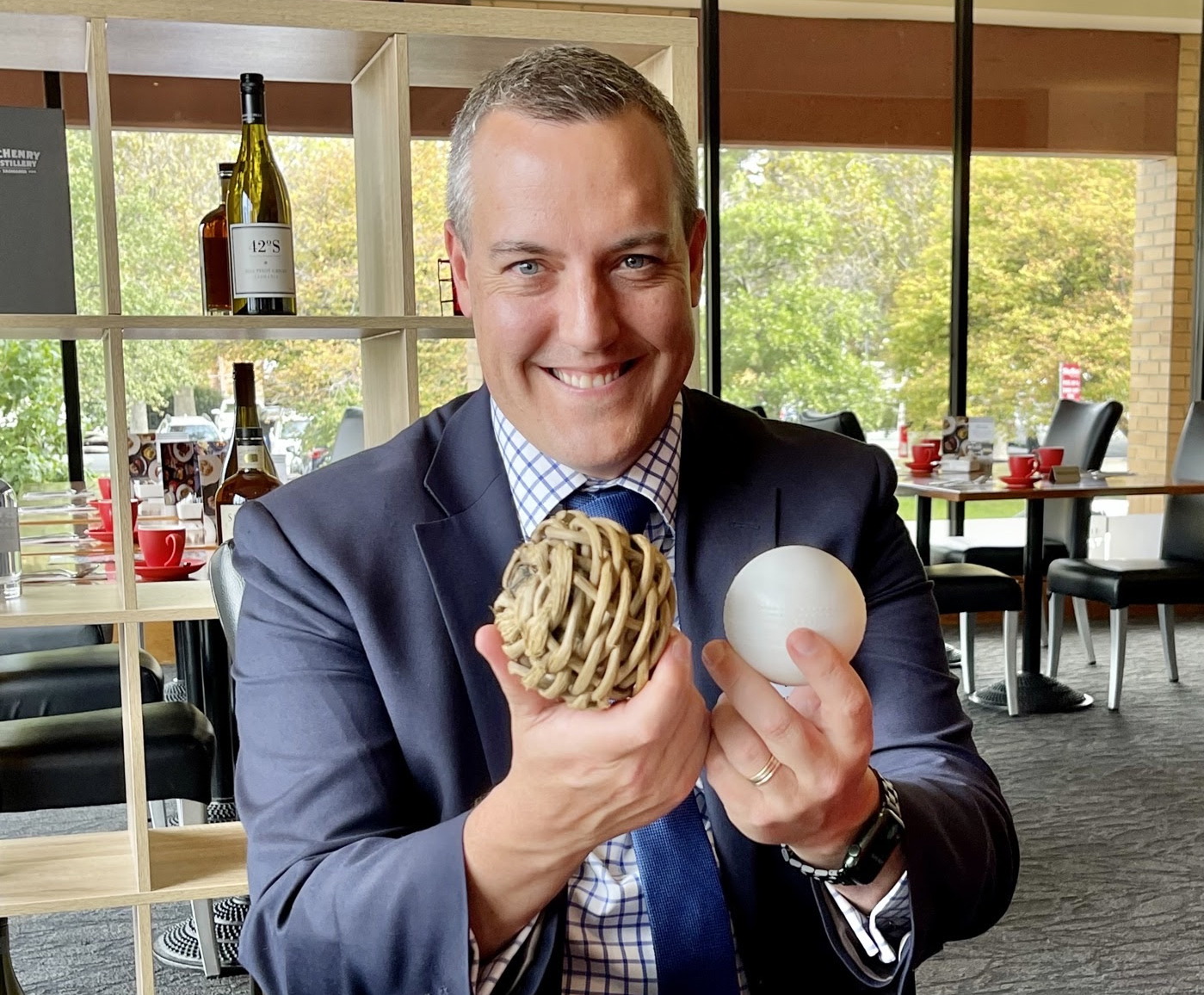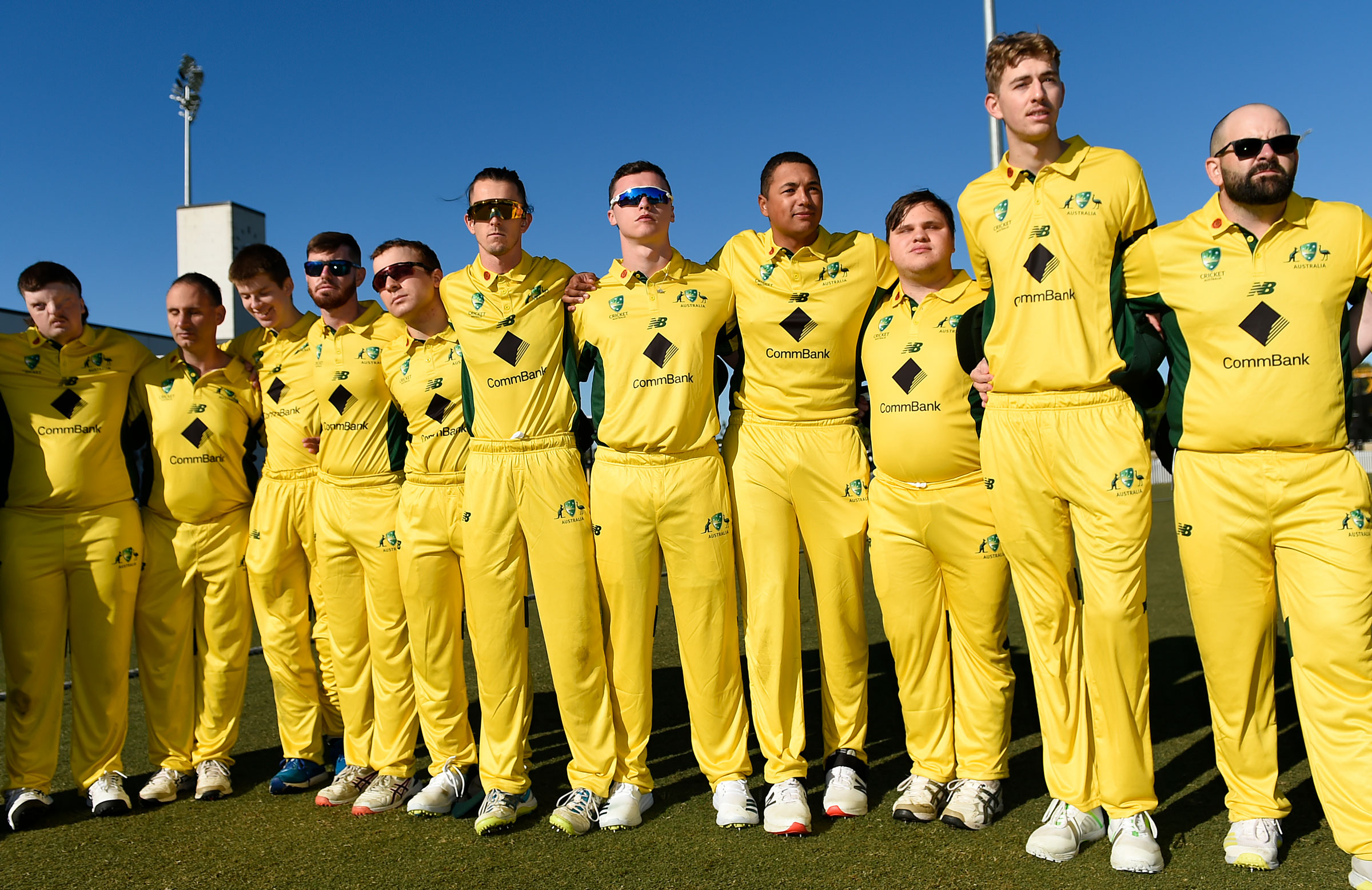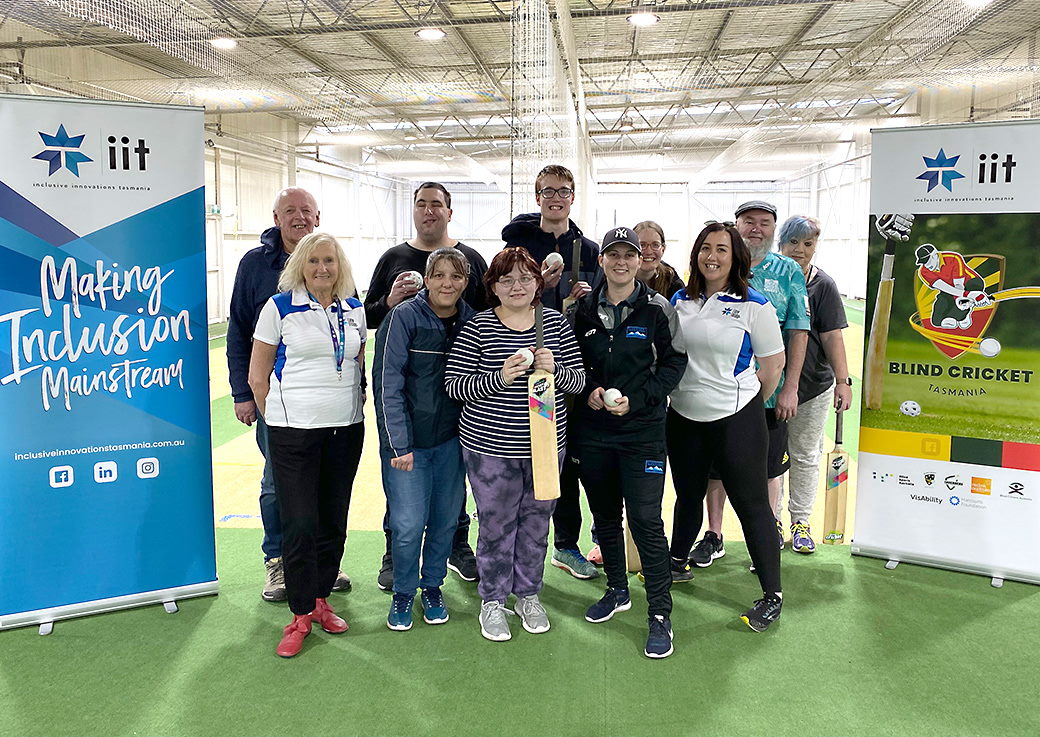Never miss an update or event
Register for updates to get news and event notifications sent to your inbox. To learn how we store and use your data, go to our privacy policy.



Blind cricket has a long history as both a community and representative sport. Given that cricket is such a well loved sport in Australia, it’s no surprise that blind cricket is an Australian invention.
Learn how the game is played today




Blind cricket was invented in Melbourne in 1922 by two returned servicemen. Many soldiers that returned home from World War 1 had lost their sight on the battlefields.
They had the idea to fill a tin can with rocks and began to play the game they had always loved – and the sport grew quickly.
The first sports ground and clubhouse for blind cricketers was built in Kooyong, Melbourne in 1928. It is still the home of blind cricket in Victoria today. 1928 was also the year when the first interstate match, between New South Wales and Victoria, took place in Sydney.



From these early beginnings, blind cricket spread around Australia, and is now player across the world too.
The original ball concept of a tin can filled with rocks, became a cane ball that could be heard better around the field. This is the ball that was used in the first National Blind Cricket Championships in 1952.
Nylon balls of various colours were introduced and used from the early 70s. And since the early 2000’s hard white plastic balls that are either fully enclosed, or have holes to allow the ‘rattling’ sound to be heard better, are now the most commonly used.



The sport has a strong international following. It’s played in countries all over the world including New Zealand, India, Pakistan, South Africa and England.
The first world blind cricket cup was held in 1998 in India, and was won by South Africa. Since then, a world cup has regularly been held every 4 years. In 2012, a new T20 world cup was introduced and 5 teams competed. It ran again in 2017.
There’s even an Ashes series between Australia and England every 4 years, with ‘baggy greens’ awarded to all representative players.
The sport has evolved a lot since 1922. Now, players can join in and play for health, fun and social reasons, or they can choose to aspire for selection for their state or the Australian men’s or women’s blind cricket sides.



Blind cricket was played in Tasmania long before IIT founded Blind Cricket Tasmania (BCT) in 2020.
Social games in the 80’s were often played against local businesses. As the games were played against sighted people, they were restricted to 20 runs or 5 overs each. Then in the 90s, matches were held against groups from the Army barracks, or the hospital.
And in the early 2000’s there were two interstate matches held between some local players and some Victorian state team members, who travelled down to support the development of the game.
But transport was difficult back then, and with no financial support the sport was focused around Hobart until it finally declined.
But now BCT has re-invigorate the sport across the state, including staging public Come & Try Days, attracting both low vision and sighted players who can play together due to the game’s accessible and inclusive nature.



Our goal is to not only give people the opportunity to play and enjoy blind cricket in Tasmania, but to represent the state on the national, and possibly international, stage. First, through our partnership with ACT Blind Cricket, and then as our own state team by 2025.
Tasmania has a strong cricketing history. We want to continue that through Blind Cricket Tasmania.
We’re mindful of the history of blind cricket in the state, and it’s long absence from the sporting and social life of Tasmania. We’re working closely with a wide range of partners who have been involved in the sport around Australia, and newcomers, to make sure this organisation is built by the community, for the community.
Register for updates to get news and event notifications sent to your inbox. To learn how we store and use your data, go to our privacy policy.